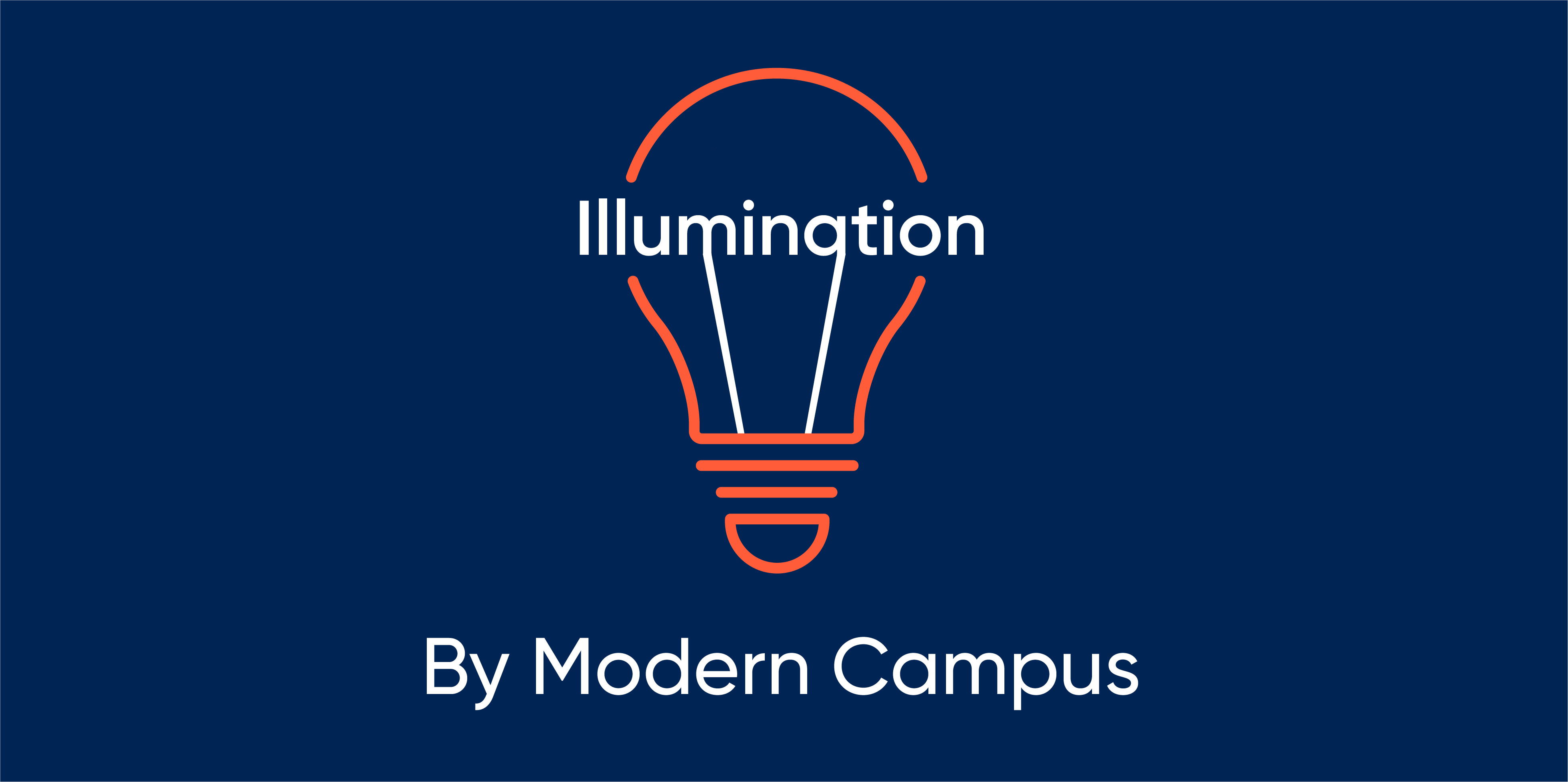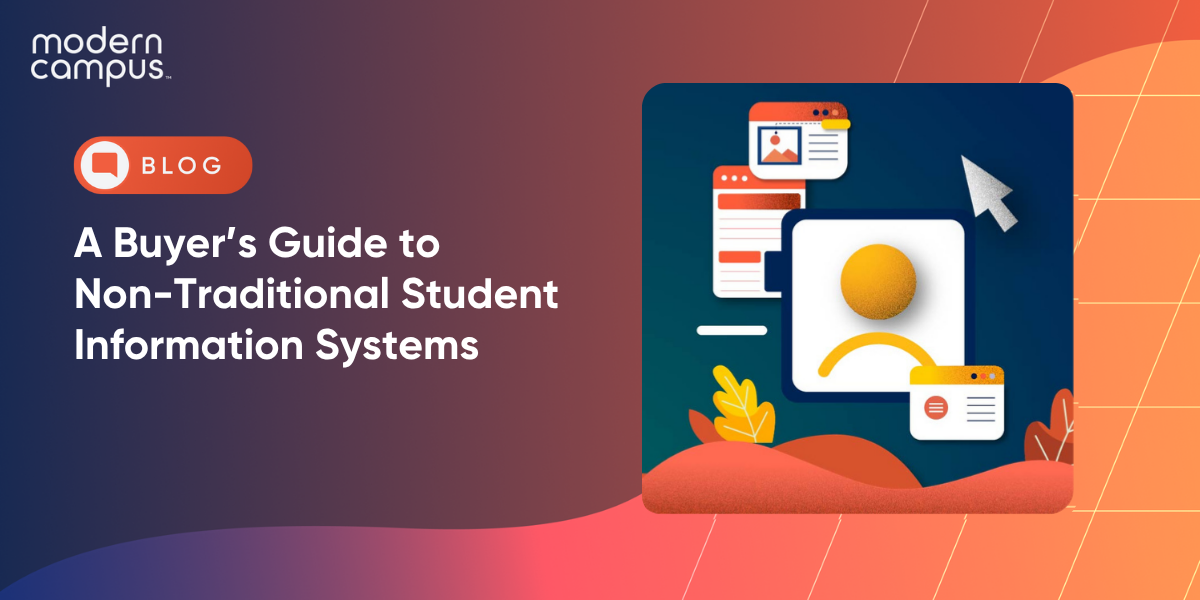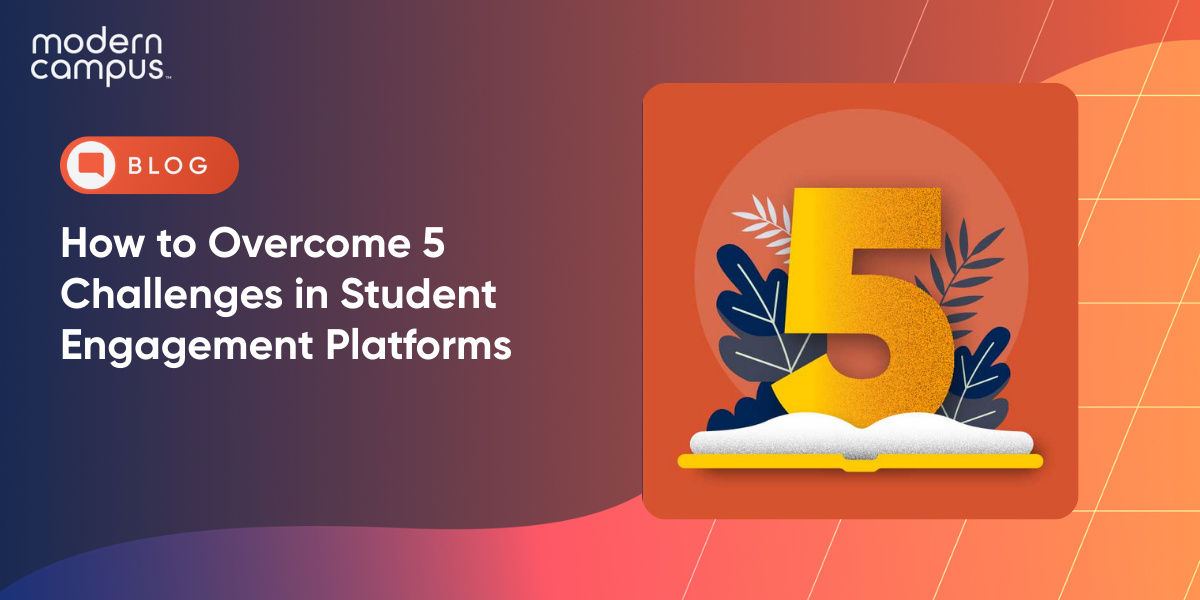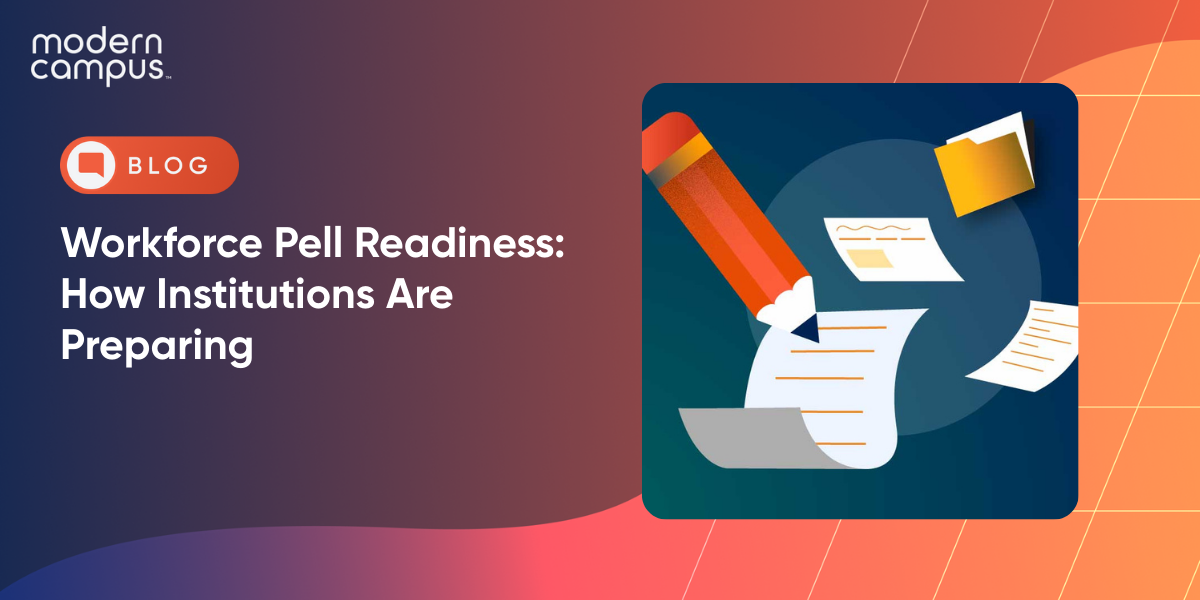Bringing Intentionality to the Institution to Drive Student Success

Divisions like Continuing Education and Workforce Development have often been left on the periphery of the institution, developing their own programming to meet non-traditional student needs.
But these units are becoming increasingly important to the overall direction of the modern institution.
In the seventeenth episode of Illumination by Modern Campus, Anton Reece, President of West Kentucky Community and Technical College, highlighted the need to serve this growing audience of modern learners.
“There’s a critical need for a well-trained, ongoing workforce,” Reece said.
This means more lifelong learners are looking to the institution for accessible, flexible programming and services that suit their lifestyles.
Reece points out that there’s a three-prong arm to the mission of the institution: excellence in teaching and learning, champions to do success, and workforce and economic development. Creating a well-trained workforce means all three arms need to be successful.
To develop the right programming for the right learners at the right time, you need to be closely aligned with industry. For Reece, that means developing advisory councils and being proactive with hosting business symposiums.
“There's a direct connection to business and industry,” he said.
As this need for strong partnerships emerges, employers are beginning to change their perceptions around their relationships with local colleges. They want to be tied closer to the institution to ensure that they’re needs are being met and the talent pipeline is filled with well-trained employees.
This collaboration effort is made up of education, awareness and marketing. Employers need to know that a partnership with an institution is working.
“A big thing for stakeholders is return on investment,” Reece said.
Return on investment can also be seen through Student Affair departments. Unfortunately, much like Workforce Development, Student Affairs have often been left on the sidelines.
But they don’t have to be.
“With intentionality, they're not on the periphery, they’re central to the institution’s operations,” Reece said.
And it begins with recruitment. By leveraging the knowledge and expertise of Student Affairs, the institution can increase its retention rates.
“Having them more directly tied into the teaching and academic support are the ways in which we can ensure engagement is holistic and not scattered,” Reece said.
When a learner knows an institution cares about them, they’re more likely to persist through their educational journey to attain that credential. To adopt this student-centered approach, it requires intentionality around the work happening on the student affairs side.
“You have to be intentional in the ways you assess engagement,” Reece said.
But Student Affairs shouldn’t be solely responsible for this.
“It’s important to have all hands on deck around student engagement and retention,” Reece said.
This means leaders at the top need to model the importance of this intentionality.
“It needs to be frequently heard and reiterated, and accountability measures need to be in place,” Reece said.
To drive this change towards a more student-centric institution, a culture change needs to happen. For Reece, that means leaders need to better articulate expectations to faculty.
“The expectation is defining—or redefining—what success looks like at your college for students,” he said.
This means having the right systems in place for seamless operations and leveraging the expertise of all departments.
“The divide between academic and student affairs can seem like it continues to drift apart,” Reece said, “We need to come at it as equals and focus on why we’re here and what we do.”
Full Episode
Last updated: October 28, 2021


